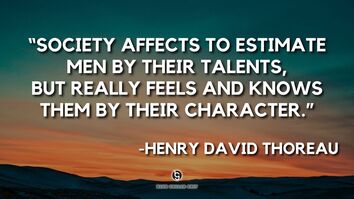The Talent FallacyIt’s March Madness, the greatest sporting event on earth! Over the course of the next few weeks buzzer beaters will break hearts and keep dreams alive, tiny mid-majors will compete against tradition-rich blue bloods, and players we’ve never heard of will out-perform guaranteed lottery picks.
It’s entertaining, infuriating, and exhilarating all at the same time. It never fails to deliver. Of course, most people love it the most for the upsets. Highly rated teams from big conferences with enormous fan bases being knocked out of the tournament by a team whose location is a mystery and look like they finished second at the local YMCA winter men’s league. These matchups provide the lifeblood of the entire tournament. The question is, why do the upsets happen? The larger schools almost always have teams with more talent - higher recruits, bigger athletes, more skilled basketball players … so, why do they lose? How can these smaller schools with lower rated recruits, smaller players, with less skill beat the goliaths? There are many reasons it happens, but it all boils down to one key point that coaches, and business leaders, miss on over and over and over: Talent is overrated. Why Should We Care? We do the same thing in the ‘real’ world. When hiring, or putting teams together, our focus is always on finding the most talented candidates. I mean, if the purpose of your resume isn’t to highlight your talents, then what is it? Of course, there is a certain level of competency required to fill any role on a team, but once that base level is met virtually everything else that leads to success is unrelated to talent. The mindset around talent says more is always better when most of the time, enough is usually best. While maximizing talent remains at the top of most employer’s wish lists, the best leaders understand the idea of a talent threshold - more is not always better. And, once that threshold is met, they turn their attention to critical behaviors that allow individuals to function at maximum capacity within a team. Soft skills like humility and emotional IQ are easy victims of this relentless quest for talent. Partially because they’re harder to see and partially because they simply are not valued enough. REAL TALK - Action Steps When your team is struggling to reach its goals, the answer is typically not a lack of talent. Yet, insufficient talent is the most common scapegoat for underperformance. Likewise, when your team is performing at its best, the reason is rarely due solely to your talent. Nonetheless, a team’s success is almost always attributed simply to one thing: talent. Here are a few characteristics that are every bit as deserving of credit as talent. *Pat Lencioni’s The Ideal Team Player
Contrary to the popular approach to team structure, talent alone is not king. Unless accompanied by a few other critical attributes, talent can be just as detrimental as it is beneficial. Checkout Surrender the Outcome on Amazon and order our new book The Score That Matters with Ryan Hawk & Brook Cupps. The latest blog from Blue Collar Grit can be found here!
1 Comment
3/29/2024 08:37:56 am
Hi, I absolutely loved this post and needed it. I was just talking about faith yesterday with my friend, but hadn't made the connection with confidence. I am the player who works harder than everyone else but is terrified at the moment I have to share that work with others or talk about myself (I'm a musician). I would love it if you would write a whole post on authentic, genuine confidence. I was raised to be humble, but also by a controlling parent who didn't really see me. I wasn't raised to feel genuinely special so it's difficult to manufacture as a result. I value humility, and I know I'm supposed to be a musician, but I find it hard to simultaneously be humble and confident at the same time. I think a lot more has been written on faith, and I got enough out of your post to know how to work on that. But I want to hear more (so much more haha!) on how we detach from other's views, and how (because it's not clear to me) that creates confidence. Thank you!
Reply
Leave a Reply. |
About bcI'm a teacher, coach, and parent seeking excellence while defining success on my own terms. Archives
July 2024
Categories |


 RSS Feed
RSS Feed